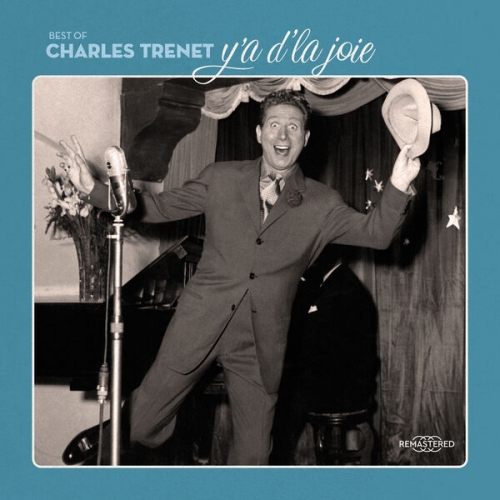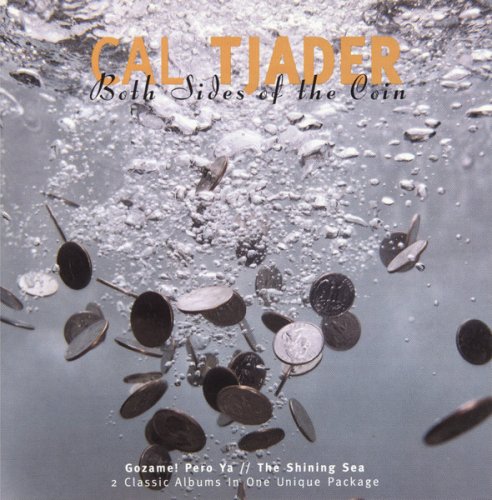Fritz Wunderlich - Arias & Scenes (2021) [Hi-Res]

Artist: Fritz Wunderlich
Title: Arias & Scenes
Year Of Release: 2021
Label: Jube Classic
Genre: Classical
Quality: FLAC (tracks) [48kHz/24bit]
Total Time: 1:24:08
Total Size: 763 / 326 MB
WebSite: Album Preview
Tracklist:Title: Arias & Scenes
Year Of Release: 2021
Label: Jube Classic
Genre: Classical
Quality: FLAC (tracks) [48kHz/24bit]
Total Time: 1:24:08
Total Size: 763 / 326 MB
WebSite: Album Preview
01. Die Zauberflöte, K. 620 (Excerpts): Dies Bildnis ist bezaubernd schön
02. Die Zauberflöte, K. 620 (Excerpts): Wie stark ist nicht dein Zauberton
03. Der Waffenschmied: Man wird ja einmal nur geboren
04. Undine: Undine: Vater, Mutter, Schwestern, Brüder
05. Martha: Martha: Ach, so fromm
06. L'elisir d'amore, A. 36: Wohl drang aus ihrem Herzen (Sung in German)
07. Cavalleria rusticana (Excerpts Sung in German): O Lola, rosengleich
08. Cavalleria rusticana (Excerpts Sung in German): Du hier, Santuzza?
09. Cavalleria rusticana (Excerpts Sung in German): Ihr Freunde, kommt und trinkt
10. Cavalleria rusticana (Excerpts Sung in German): Mutter, der Rote war allzu feurig
11. Rigoletto (Excerpts Sung in German): Freundlich blick ich
12. Rigoletto (Excerpts Sung in German): O wie so trügerisch
13. La bohème, SC 67 (Excerpts Sung in German): Wie eiskalt ist dies Händchen
14. La bohème, SC 67 (Excerpts Sung in German): In einem Wagen?
15. La bohème, SC 67 (Excerpts Sung in German): Marcel, da bist du?
16. La bohème, SC 67 (Excerpts Sung in German): Sind wir allein?
17. Tosca, SC 69 (Excerpts Sung in German): Wie sich die Bilder gleichen
18. Tosca, SC 69 (Excerpts Sung in German): Und es blitzten die Sterne
19. Madama Butterfly, SC 74 (Excerpts Sung in German): Im weiten Weltall
20. Madama Butterfly, SC 74 (Excerpts Sung in German): Mädchen, in deinen Augen liegt ein Zauber
21. Madama Butterfly, SC 74 (Excerpts Sung in German): Leb' wohl, mein Blütenreich
22. Turandot, SC 91 (Excerpts Sung in German): O weine nicht, Liu
23. Turandot, SC 91 (Excerpts Sung in German): Keiner schlafe
Fritz Wunderlich could be considered the James Dean of the singing world -- a young, charismatic performer who suffered a tragic death at the height of his career and abilities, and whose posthumous reputation has grown beyond that which he was able to enjoy during his short life. Considered among the finest Mozartean tenors of his day, Wunderlich embraced a wide repertory that expanded to included the works of Strauss, Schubert, Bach, and Mahler, and he left behind many excellent recordings that have been the primary source of his legacy.
Wunderlich (Friedrich Karl Otto) was born in Kusel, Rheinland-Pfalz, Germany. His life included music from the very beginning, since his father was the director of a local choir and his mother was a violinist. The young tenor gained mild local celebrity for his singing in Kusel, and in 1950 he departed for the Freiburg Musikhochschule with partial financing from the town; he met the remainder of his study-related expenses by directing a small dance band in Breisgau. Wunderlich's first operatic appearance was, appropriately enough, as Tamino in a student production of Mozart's Die Zauberflöte -- a role with which he would remain associated for the rest of his career. In fact, he made his professional debut with the very same piece just a year later (1955) at the Stuttgart Opera. He remained with Stuttgart until he was hired by the Frankfurt Opera company, staying there from 1958 to 1960. He first appeared in the Salzburg Festival in 1959, where he sang the part of Henry in Richard Strauss's Die schweigsame Frau. He became a member of the Munich Opera in 1960 and from 1962 also was a regular at the Vienna State Opera.
Wunderlich quickly earned a reputation as the leading lyric tenor in Germany. His clear, strong voice easily filled an operatic hall, but he always retained a purity of sound and line that was equally well suited to more intimate settings. In international appearances he essayed mostly Mozart roles, for which he was especially celebrated and which did not tax the dramatic limits of his voice; however in the smaller houses of his native Germany he explored slightly more adventurous repertory, including Alfredo in La Traviata and Lensky in Eugene Onegin. All of his performances were marked by an unflappable lyricism and an associated control of phrasing and breath -- both of which have remained his most lauded qualities. Wunderlich created the role of Tiresias in the first performance of Carl Orff's Oedipus der Tyrann in Stuttgart in 1959, and sang the part of Christoph in Werner Egk's Die Verlobung in San Domingo in Munich in 1962. He contemplated expanding further, into the lyrical Wagnerian roles. This was not to be, as he died in an accidental fall at a friend's home. ~ Rovi Staff
Wunderlich (Friedrich Karl Otto) was born in Kusel, Rheinland-Pfalz, Germany. His life included music from the very beginning, since his father was the director of a local choir and his mother was a violinist. The young tenor gained mild local celebrity for his singing in Kusel, and in 1950 he departed for the Freiburg Musikhochschule with partial financing from the town; he met the remainder of his study-related expenses by directing a small dance band in Breisgau. Wunderlich's first operatic appearance was, appropriately enough, as Tamino in a student production of Mozart's Die Zauberflöte -- a role with which he would remain associated for the rest of his career. In fact, he made his professional debut with the very same piece just a year later (1955) at the Stuttgart Opera. He remained with Stuttgart until he was hired by the Frankfurt Opera company, staying there from 1958 to 1960. He first appeared in the Salzburg Festival in 1959, where he sang the part of Henry in Richard Strauss's Die schweigsame Frau. He became a member of the Munich Opera in 1960 and from 1962 also was a regular at the Vienna State Opera.
Wunderlich quickly earned a reputation as the leading lyric tenor in Germany. His clear, strong voice easily filled an operatic hall, but he always retained a purity of sound and line that was equally well suited to more intimate settings. In international appearances he essayed mostly Mozart roles, for which he was especially celebrated and which did not tax the dramatic limits of his voice; however in the smaller houses of his native Germany he explored slightly more adventurous repertory, including Alfredo in La Traviata and Lensky in Eugene Onegin. All of his performances were marked by an unflappable lyricism and an associated control of phrasing and breath -- both of which have remained his most lauded qualities. Wunderlich created the role of Tiresias in the first performance of Carl Orff's Oedipus der Tyrann in Stuttgart in 1959, and sang the part of Christoph in Werner Egk's Die Verlobung in San Domingo in Munich in 1962. He contemplated expanding further, into the lyrical Wagnerian roles. This was not to be, as he died in an accidental fall at a friend's home. ~ Rovi Staff




![Karin Krog & John Surman - Infinite Paths (2015) [Hi-Res] Karin Krog & John Surman - Infinite Paths (2015) [Hi-Res]](https://www.dibpic.com/uploads/posts/2026-02/1770025527_env1crs2mqx1a_600.jpg)



